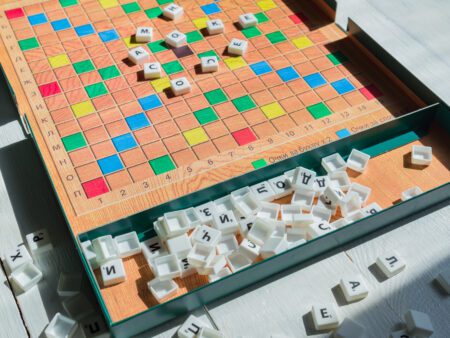Discover the role of luck in poker and gain insights into how to minimize variance for consistent results. Enhance your poker capabilities with strategic play.
The Role of Luck in Poker: How to Minimize Variance
Every poker player hears it ceaselessly: ‘Poker is a game of skill, not luck.’ To some adult extent, this is true; strategic thinking, bluffing expertise, disciplined betting, and understanding probabilities do play significant roles. But let’s face it; luck, specifically in the form of card distribution, is an undeniable part of poker. So where does that leave us?
Understanding Variance in Poker
Variance, which refers to the statistical dispersion of results, is the element in poker that introduces luck. This variability might make a lesser skilled player win over a more experienced one in a single night. However, it is also variance that allows strategic playing to pay off in the long run, as over countless hands, the randomness of card distribution evens out. Understanding this relationship between skill and luck is key to becoming a great poker player.
Managing Luck: Minimizing Variance
Minimizing variance starts with comprehending that you cannot control the playing cards; you can only control how you react to them and how you maneuver your chips. Concentrating on decisions, instead of results, will net you consistent and more predictable outcomes. Here are a few ways to decrease variance in your poker gameplay.
- Following the Bankroll Management: Ensuring that you have enough chips to ride through rough patches is key to managing variance. Staying within defined limits relative to your overall bankroll can help you prevent detrimental losses.
- Playing a Tight and Aggressive Strategy: This involves playing fewer hands but betting and raising more. This style can lead to less volatile swings and bring in consistent results.
- Avoiding Bluffing Too Much: While bluffing is an essential part of poker, excessive bluffing, especially against less experienced players who tend to call more, can increase your variance.
- Choosing the Right Game: Playing in games with players of similar or lesser skill levels can lead to less variance. Understanding the volatility of different types of games can also help. For example, tournaments tend to have higher variance than cash games.
The common aspect between poker and any other game in the casino universe, like our well-illustrated baccarat strategy beginner guide, is that each game has its degree of skill requirement coupled with a sprinkle of luck. The cards you draw in poker cannot be controlled, but how you adjust to them significantly determines the game’s outcome. This inevitable swing in your game results due to the element of chance is known as variance.
Coping Mechanisms to Minimize Variance in Poker
To cope with variance effect, one must possess a strong mindset, capable of fending off the frustration of losses incurred due to bad luck. Here are some strategies that can help:
- Bankroll Management: This is the most vital aspect when it comes to dealing with variance. Ensuring you have enough in your bankroll to ride through the run of bad cards will keep you in the game for the long haul.
- Game Selection: Choose poker games and tables that match your ability. The less skilled your opponents, the lower the variance. It’s always better to be the shark amongst the fishes than the other way around.
- Discipline: Keep emotions in check and make every decision rationally. Emotionally driven decisions can often lead to high-risk plays, increasing your variance.
- Playing Style: Adopting a tight-aggressive playing style can often result in more consistent wins and lower variance. This approach involves playing fewer hands but playing them strongly when you do.
Embrace Variance, Improve Your Poker Game
In poker, the short term doesn’t matter as much as the long term, and dealing with variance is all about playing the long game. Developing a greater understanding of variance can lead to increased patience, better strategic decisions, and improved management of your bankroll. So remember, while a specific hand’s outcome may be down to luck, your long-term success will invariably hinge upon your skill, strategic decisions, and how effectively you manage your bankroll.
Conclusion
When it comes to poker, always remember that even though luck might dictate a single hand’s result, your decision-making abilities and strategy have a significant role to play in the long run. Minimizing variance and handling its outcome effectively is a skill that takes time to master. It’s about embracing the fluctuations and using them to learn, grow, and develop as a player.
Want to explore more unique strategies to amplify your winnings across a diverse range of casino games? Dive into our full collection of educational materials at the Casino Learning Center, and give yourself the winning edge the next time you decide to play.
Remember – the only sure bet in poker is the player who never stops learning!










